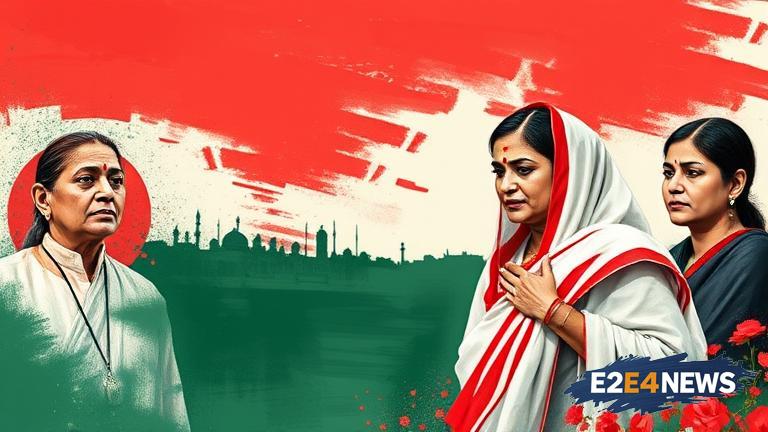Bangladesh, a country with a rich history of political turmoil, is on the cusp of a new era as it prepares to move beyond the leadership of Prime Minister Sheikh Hasina. The current government, led by the Awami League, has been in power since 2009 and has implemented various policies and projects aimed at developing the country’s economy and infrastructure. However, the government’s tenure has also been marked by controversy, including allegations of human rights abuses and suppression of opposition. As the country moves towards a post-Hasina era, the political landscape is undergoing significant changes, with various factions and parties vying for power. The opposition, led by the Bangladesh Nationalist Party (BNP), has been actively organizing protests and rallies, demanding free and fair elections and an end to the current government’s authoritarian rule. The BNP, which has been out of power since 2006, is seeking to capitalize on the growing discontent among the population, particularly among the youth and the middle class. The party’s leader, Khaleda Zia, has been a vocal critic of the government and has called for the release of political prisoners and an end to the harassment of opposition activists. Meanwhile, the Awami League is facing internal divisions, with some members calling for a change in leadership and others pushing for a more hardline approach to dealing with the opposition. The party’s general secretary, Obaidul Quader, has been a key figure in the government’s efforts to suppress the opposition, but his tactics have been widely criticized by human rights groups and the international community. As the country prepares for elections, the role of the military is also coming under scrutiny, with some analysts suggesting that the armed forces may play a key role in shaping the country’s political future. The military has a long history of intervention in Bangladeshi politics, and its current leadership has been accused of being closely aligned with the Awami League. Despite these challenges, Bangladesh has made significant progress in recent years, with the economy growing rapidly and the country making strides in areas such as education and healthcare. However, the country still faces significant development challenges, including poverty, inequality, and corruption. The next government will need to address these issues, as well as the growing concerns about human rights and democratic governance. The international community, including the United States, the European Union, and India, is watching the situation in Bangladesh closely, with many calling for free and fair elections and an end to human rights abuses. The United Nations has also been involved in efforts to promote democratic governance and human rights in Bangladesh, with the UN Secretary-General António Guterres recently expressing concern about the situation in the country. As the country moves forward, it is clear that the emerging political landscape of post-Hasina Bangladesh will be shaped by a complex interplay of factors, including the actions of the government, the opposition, and the military, as well as the influence of external actors. The outcome of the next elections will be crucial in determining the country’s future, and it is likely that the polls will be closely contested. The Awami League is expected to face a strong challenge from the BNP, and other parties, including the Jatiya Party and the Jamaat-e-Islami, may also play a significant role. The election campaign is likely to be marked by controversy and tension, with all sides accusing each other of wrongdoing and seeking to mobilize support among the population. Ultimately, the future of Bangladesh will depend on the ability of its leaders to put aside their differences and work towards a common goal of promoting democratic governance, human rights, and economic development. The country has a long and proud history, and its people deserve a government that is accountable, transparent, and responsive to their needs. As the country prepares for a new era, it is clear that the challenges ahead will be significant, but it is also clear that the opportunities for progress and development are vast.





